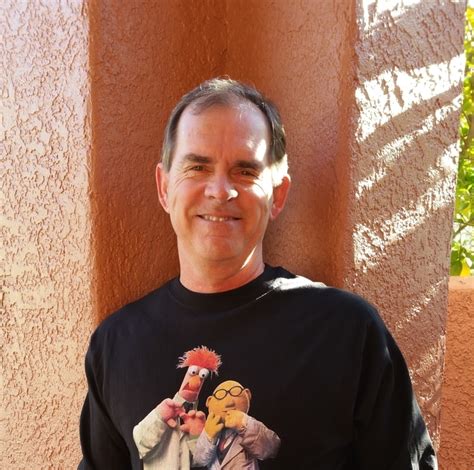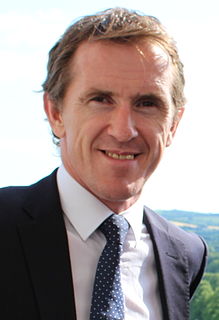A Quote by Ralph Waldo Emerson
For this present, hard
Is the fortune of the bard,
Born out of time;
All his accomplishment,
From Nature's utmost treasure spent,
Booteth not him.
Related Quotes
What a man does, that he has. What has he to do with hope or fear? In himself is his might. Let him regard no good as solid but that which is in his nature, and which must grow out of him as long as he exists. The goods of fortune may come and go like summer leaves; let him scatter them on every wind as the momentary signs of his infinite productiveness.
Think long and hard about the way you invest your children's time. Time is treasure. And where your time investment is, there you will find the heart of a child. Invest the majority of his time in entertainment, and his heart will be turned to love of pleasure. Invest his time in peers rather then family, and his heart will be with the peers more than his family. There is a time and place for all good things in balance, but wise parents will steward the treasure of time, and in so doing, shepherd their children's hearts.
By the nature of the sport and the danger we face daily, we are very close knit. Some of us have spent most of our lives together. To give you an example, having spent two decades sitting next to Richard Johnson and seeing him virtually every day, I have probably spent more time with him than I have my family, and he the same.
Some souls think that the Holy Spirit is very far away, far, far, up above. Actually he is, we might say, the divine Person who is most closely present to the creature. He accompanies him everywhere. He penetrates him with himself. He calls him, he protects him. He makes of him his living temple. He defends him. He helps him. He guards him from all his enemies. He is closer to him than his own soul. All the good a soul accomplishes, it carries out under his inspiration, in his light, by his grace and his help.
Only to two or three persons in all the world are the reminiscences of a man's early youth interesting: to the parent who nursed him; to the fond wife or child mayhap afterwards who loves him; to himself always and supremely--whatever may be his actual prosperity or ill fortune, his present age, illness, difficulties, renown, or disappointments--the dawn of his life still shines brightly for him, the early griefs and delights and attachments remain with him ever faithful and dear.
Nature in causing reason and the passions to be born at one and the same time apparently wished by the latter gift to distract man from the evil she had done him by the former, and by only permitting him to live for a few years after the loss of his passions seems to show her pity by early deliverance from a life that reduces him to reason as his sole resource.
I am in the utmost perplexity, yand have wished a hundred times, that if there is a A God, nature would manifest him without ambiguity, and that if there is not, every imaginary sign of his existence might vanish : in short, let nature speak distinctly, or be totally silent, and I shall know what course to take.
We search for happiness everywhere, but we are like Tolstoy's fabled beggar who spent his life sitting on a pot of gold, under him the whole time. Your treasure--your perfection--is within you already. But to claim it, you must leave the buy commotion of the mind and abandon the desires of the ego and enter into the silence of the heart.
I'd go back and hang out with Isaac Newton. I'm torn between do I hang out with him or do I bring him into the present to hang out with me. See, that might be terrifying because his head will just explode once he sees everything that was derived from his discoveries, but I'd spend more time with someone who I think is one of the most brilliant minds our species has ever known.
Let a man choose what condition he will, and let him accumulate around him all the goods and gratifications seemingly calculated to make him happy in it; if that man is left at any time without occupation or amusement, and reflects on what he is, the meagre, languid felicity of his present lot will not bear him up. He will turn necessarily to gloomy anticipations of the future; and unless his occupation calls him out of himself, he is inevitably wretched.
A God who draws near out of love, the Holy Father continued, walks with His people, and this walk comes to an unimaginable point. We could never have imagined that the same Lord would become one of us and walk with us, be present with us, present in His Church, present in the Eucharist, present in His Word, present in the poor, He is present, walking with us. And this is closeness: the shepherd close to his flock, close to his sheep, whom he knows, one by one.







































